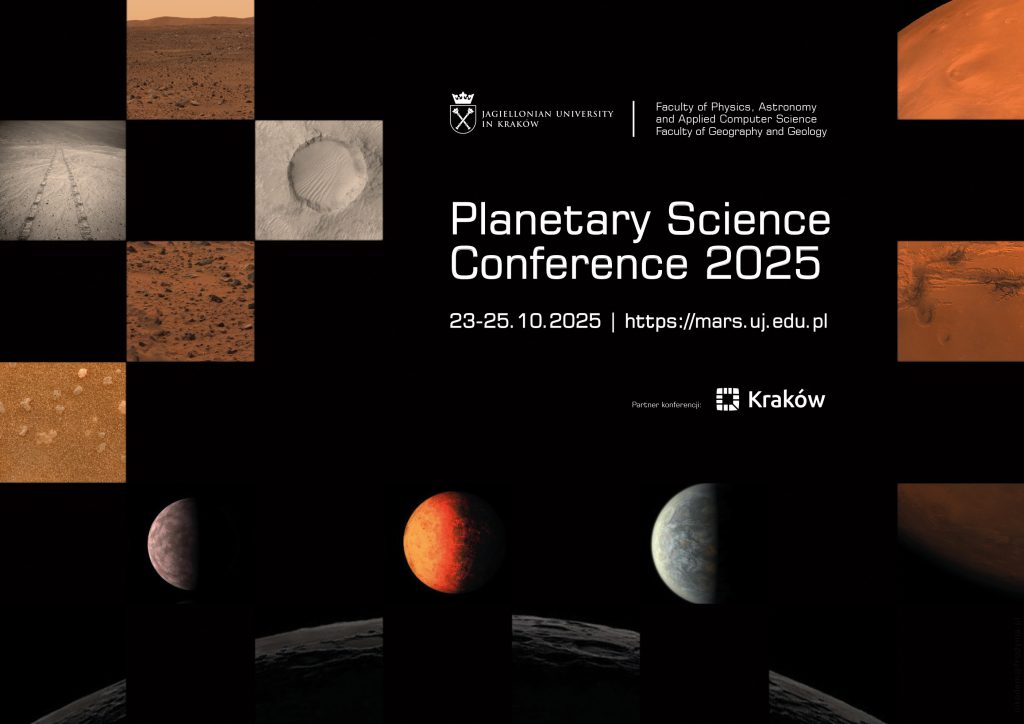The Interfaculty Program in Planetary Research (IPPR) was established in 2019 to develop planetary science at the Jagiellonian University (JU), to enable the Jagiellonian University, to participate in future space mission, and strengthen the position of the Jagiellonian University in international structures related to planetary research.
We define planetary research as a part of space research, including:
- Evolution of the Solar System: study of planets, moons, and small bodies
- Sun’s influence on artificial and natural objects in space
- The possibility of the formation, evolution or survival of living organisms beyond Earth
- Earth exploration using space techniques
- Social research on space exploration, including space law
The most important science targets for the JU have been identified as follows:
- Mars
- Small bodies in the Solar System
- Moon
The main range of studies has been defined as:
- Study of aeolian processes
- Study of clay minerals
- Studies of the subsurface layers of the celestial bodies
- Sun impact on bodies in the Solar System
- Meteorological and climatic research, including atmospheric physics
- Development of digital image processing and analysis methods
- Development of remote sensing methods and GIS techniques
- Politics and law versus AI in space exploration
- Settlement of disputes, including jurisdictional issues related to the exploration and exploitation of space




